/
Microsoft’s USD 400 Million Bet on Swiss AI
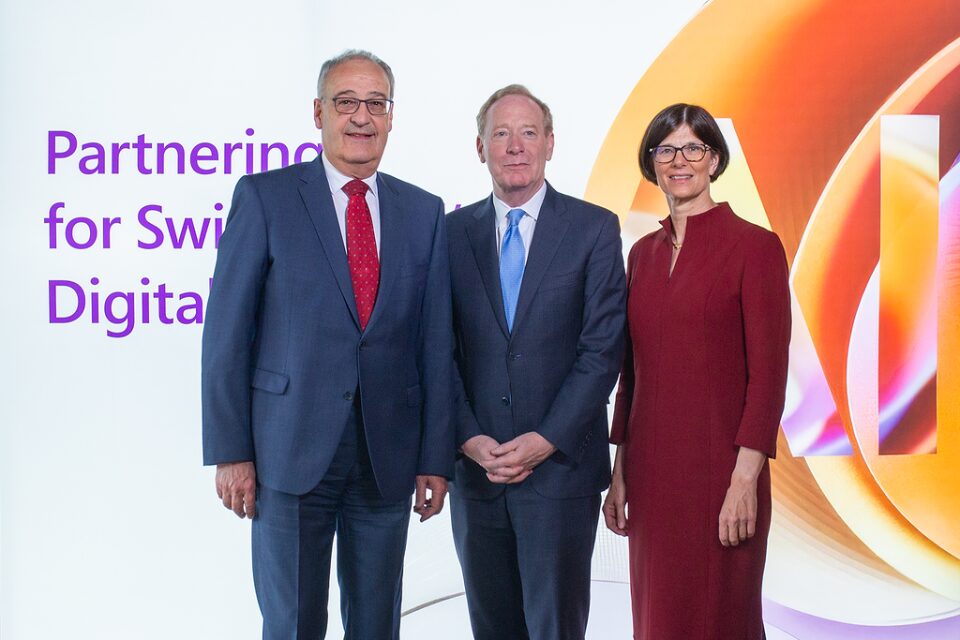
Microsoft is putting 400 million dollars behind an ambitious plan to expand its Swiss AI and cloud capacity, launch a nationwide accelerator for start‑ups and SMEs, and equip one million citizens with new digital skills by 2027. The programme gives fresh momentum to Switzerland’s goal of becoming Europe’s most trusted AI hub.
This is a significant move, executed in a meaningful way. Microsoft’s press release outlines more than a datacentre upgrade. The plan targets the bottlenecks Swiss founders and corporates raise most often: limited access to high‑end compute, fragmented early‑stage support, pressure on talent pipelines and the need for clear regulatory guard‑rails. Each pain‑point receives its own funding stream, making the package unusually comprehensive.. Let’s start by looking at the details of this deal.
A significant investment for Swiss AI
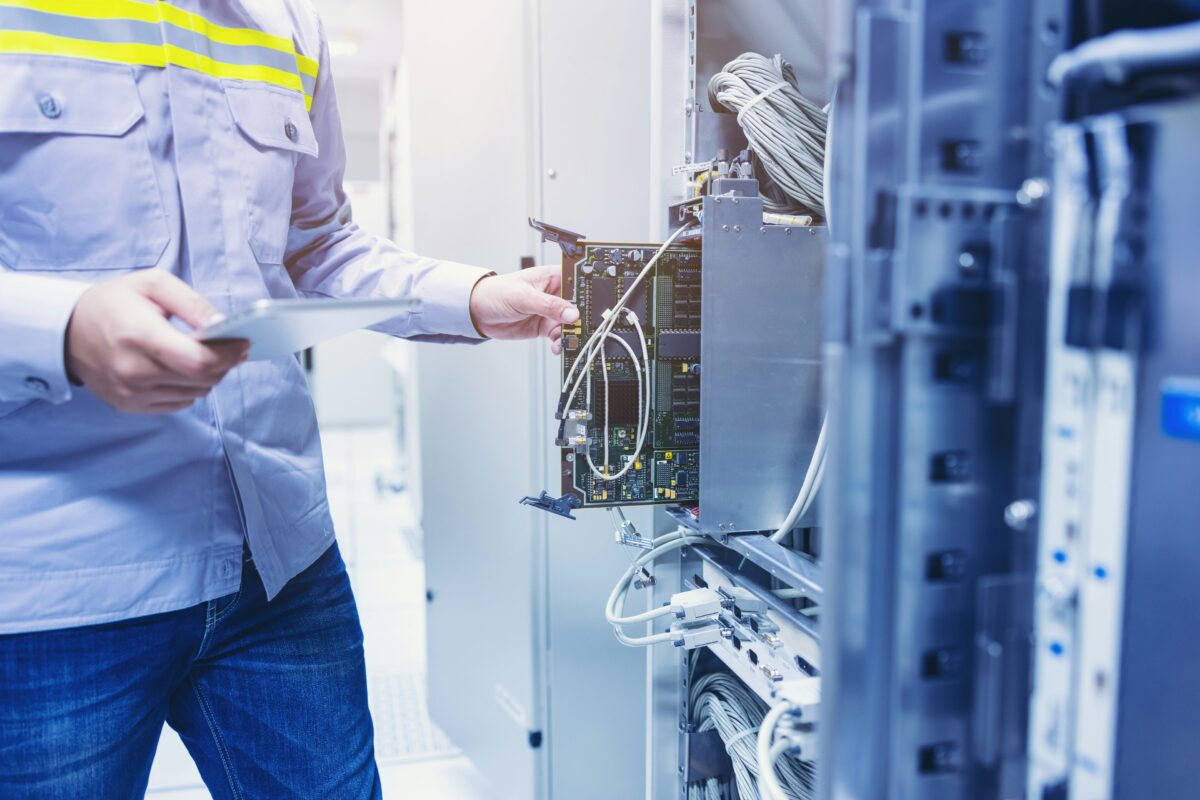
What is particularly exciting about the announcement is that it is not just an investment into Microsoft’s own infrastructure. The money will not simply go toward better datacentres but will be distributed to support various aspects of the ecosystem that should give a holistic boost to Swiss AI: from upgraded hardware to educating about one in nine residents on the intricacies of leveraging AI, Microsoft is placing a confident bet on Switzerland’s ability to fully exploit its innovation ecosystem.
1- Infrastructure that keeps innovation at home
The upgraded sites in Zurich and Geneva will serve more than 50 000 existing customers and open the door to fresh AI workloads for healthcare, finance and government, especially in sectors where latency, privacy and compliance are non-negotiable. By bringing cutting-edge silicon on-shore, Microsoft is giving Swiss engineers the headroom to train and fine-tune models without shipping data overseas.
The implications of having the ability to retain data in-country are not trivial: many private actors place significant value and pride on keeping their data local. Geography of data storage will enable more proactive experimentation than if it was stored overseas.
2- Fuel for Switzerland’s world-class innovation
Microsoft is doubling down on the backbone of our economy: SMEs and high-growth ventures. Through a new alliance with Switzerland Innovation Parks plus the nationwide Swiss AI Tech Accelerator, founders will gain cloud credits, GPU cycles, mentorship and, most importantly, routes to first customers. Since 2019, the Microsoft for Startups program has channelled more than CHF 30 million in tech resources into 1 500+ young companies, creating 11 000 jobs.
Microsoft’s focus on growing Switzerland’s innovation is highly strategic: Swiss startups and SMEs typically strive to achieve global scale, meaning they typically benefit of a large customer base. The complexity handled by many Swiss SMEs, paired by their global reach, should enable Microsoft to scale their local accounts but also nudge potential accounts towards using their solutions to better integrate with their Swiss technology supplier. Last but not least, as we will discus below, Microsoft gains its cutting edge in part by investing in Swiss startups.
3- 1/8 of Switzerland’s population up-skilled by 2027
Talent is our scarcest resource. Microsoft’s skilling drive aims to train a million people across vocational colleges, applied-sciences universities, chambers of commerce and NGOs. Through multiple initiatives, the plan meets industry demand head-on and strengthens the deep-tech talent pipeline.
Switzerland has a healthy duality in its education system, placing similar emphasis on tradecrafts and higher education. By making AI education available to a significant part of the population, Microsoft will not only be able to expand their Swiss market beyond early adopters, but also learn valuable lessons as to how AI can be leveraged by the stronghold of Swiss economy, SMEs.
4- “La Genève Internationale” 2.0
Through this investment, Microsoft is also executing its global strategy: part of their plan is to leverage Geneva’s role as the center of international diplomacy to drive global initiatives on AI policy. The city of Geneva, a potent Swiss innovation engine home to the CERN and Proton, is best known for its role as the place where the world comes together in times of crisis. Beyond the UN, Geneva hosts many important global organizations which work to support and aid those who need it the most.
Here again, Microsoft displays its commercial prowess: AI is inevitably going to be one of humanity’s most impactful innovations, on par with electricity. The world will need to organise to ensure that AI is globally rolled out in the best interest of the many. While other international poles are emerging, Geneva is the only one with this mix of innovation and geopolitcal relevance.
Bonus: heightened proximity to Swiss deep tech
Microsoft has historically proven to bet early on Switzerland: it was one of the first major corporations to support Climeworks, and has recently been an early adopter of EPFL spin-out iniat, the company making digital brains a reality. Through this investment, Microsoft gained an early edge in leveraging novel ai capabilities, already supplying financial customers with the startup’s technology.
Microsoft is furthermore showing its alignment with Swiss values. All Swiss data-centre electricity already comes from renewables, and Microsoft signed in 2024 a deal with Neustark that locks in 27600t of carbon removal. The additional capacity will follow the same carbon-negative and water-positive playbook that keeps Switzerland on the front foot of green cloud.
Why Swiss AI is a sound bet for Microsoft
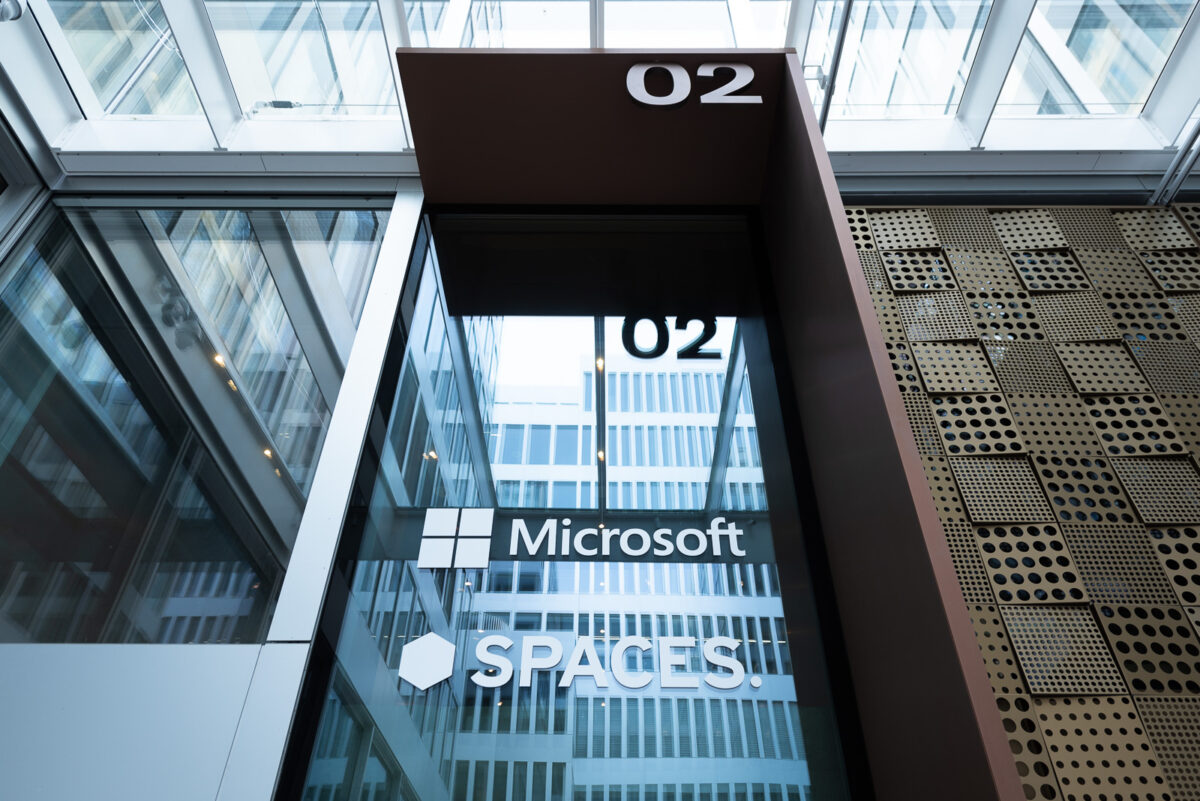
While Microsoft has long been a key player in the Swiss innovation ecosystem, this investment is not made purely to show local support: it is a strategic move and a bet in the growing role the country is taking in bleeding-edge AI. Microsoft has already shown its readiness to invest in Swiss innovation, but there are compelling reasons for which the tech giant is increasing its participation.
Switzerland excels in many fields of AI, but particularly in Novel AI and Physical AI. It is also a driver of many leading agentic AI startups and a leader in autonomous driving.
Switzerland’s triple advantage keeps compounding
Switzerland won Microsoft’s cheque by compounding three structural strengths that now read like an investor’s wish list.
- The first is talent density. Nearly six per cent of the national workforce are ICT specialists, one-and-a-half times the European average, and Zürich ranks second in Europe for AI-engineer density while placing third for absolute headcount.
- The second is pragmatic regulation. Federal policy remains technology-neutral and compatible with EU data law yet shuns the costly overhead embedded in the forthcoming AI Act.
- The third is capital productivity. University spin-offs made up twenty-nine-point-nine per cent of all Swiss financings between 2019 and 2023, more than double the OECD average.
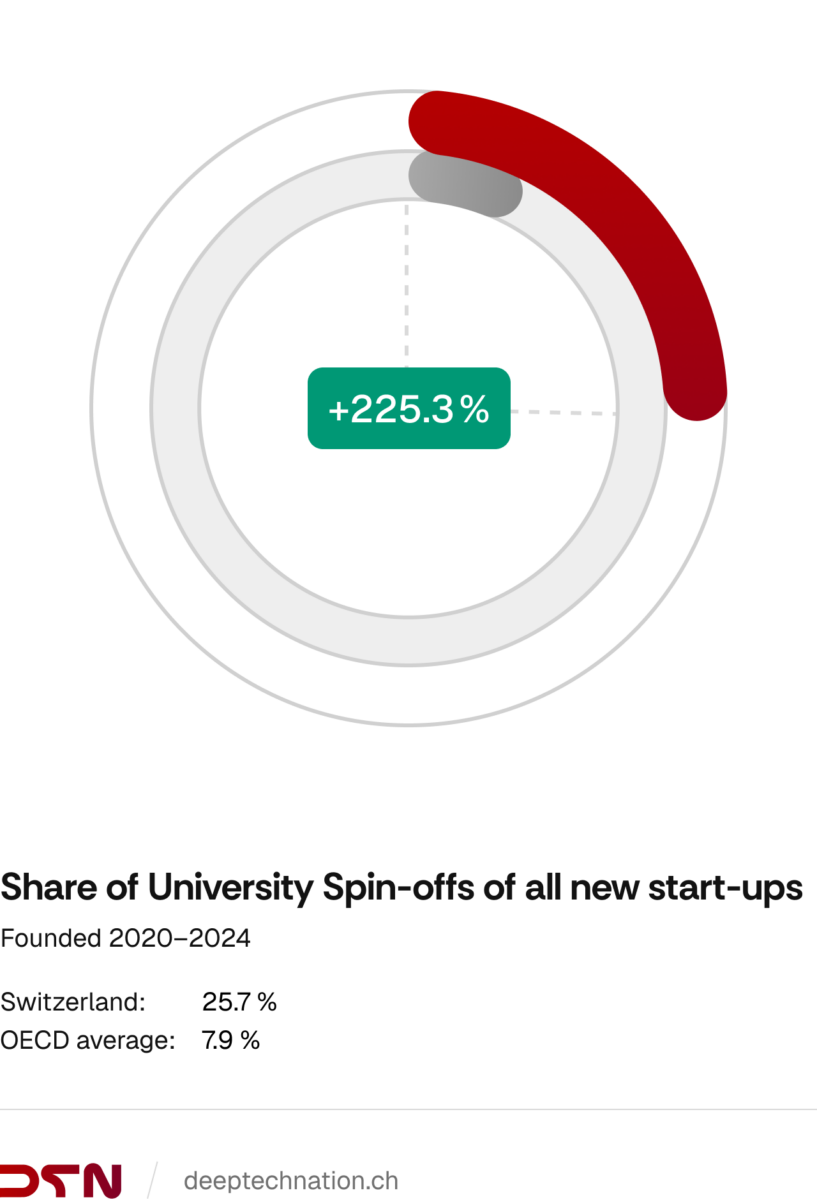
Taken together, those factors mean founders can recruit senior ML engineers, sign off their compliance paperwork, and close seed rounds faster than their peers in many EU capitals. Microsoft has simply recognised that the friction-free zone is ready for scale.
“Switzerland has created one of the world’s leading innovation ecosystems, blending world-class research with real-world applications. For more than three decades, we have stood by our Swiss customers’ side. This latest investment helps further strengthen Switzerland’s long-term economic resilience and competitiveness, while ensuring full compliance with Swiss regulations.“
Brad Smith, Microsoft Vice Chair and President
Zürich: a walkable super-cluster built on corporate gravity

A ten-minute tram ride from the main station connects Google’s five-thousand-person campus, IBM Research, Meta Reality Labs, Apple’s Vision Lab, and OpenAI’s new multimodal office. The Greater Zürich white paper lists seven of the world’s ten leading AI companies with R&D hubs in the city.
ETH Zurich, Europe’s second-best technical university according to Dealroom, is a prolific engine for AI spin-outs, which account for almost one-third of all Swiss AI start-ups.
Beyond its strength in innovation, Zurich is an international business hub, home to UBS, Swiss Re and Adecco among others
Lausanne: academic muscle eager for GPUs
Lausanne, a picturesque city on the shores of lake Geneva, is know for being the seat of the IOC, IMD and Nestlé among many other global organizations, also houses the EPFL, another leading technical university in Europe.
EPFL has initiated world-renowned AI projects such as the Blue Brain Project. Start-ups stemming from EPFL, including Flyability and inait who are now scaling globally.

Venture flows show strong support in deep-tech
Headline venture volumes dipped last year, yet under the surface Swiss deep tech showed remarkable resilience. The 2025 Venture Capital Report logs 2.369 billion francs across 357 rounds, while the median ticket rose forty per cent to three million francs. Later-stage medians doubled to twelve million, signalling a market willing to write bigger cheques for defensible IP even in cautious times. ICT and fintech softened, but biotech bounced back to seven-hundred-and-thirty-nine million francs, and cleantech set a record sixty-seven rounds, confirming investor appetite for hard science.
While many AI startups do not qualify as deep tech (see our definition here,) Switzerland is in a unique position to lead in the deep tech verticals of AI: Novel AI and Physical AI.
What this all means for Swiss AI
The Swiss innovation ecosystem as a whole stands to benefit from this move. From early-stage founders to large corporates, Microsoft’s investment will unlock compute, capital and confidence across the board. Microsoft is not the only major global player upping their investment in Switzerland; Open AI, Meta, Anthropic, and Apple have all recently opened offices in Switzerland. Microsoft’s moves highlights the continuation of this trend of tech giants growing Swiss roots.
A sample of scale-ups poised to ride Microsoft’s GPU wave
Swiss founders often prefer to under-promise and over-deliver. Even so, several teams already look set to leverage the fresh infrastructure.
- inait SA (Lausanne) – a brain-inspired reasoning engine that models cause-effect chains rather than probabilities. The company entered a formal co-development pact with Microsoft in March 2025 to pilot regulated finance workflows.
- Unique AG (Zürich) – conversation intelligence for mid-market banks that wants to process sensitive voice data entirely under Swiss privacy law. A thirty-million-dollar Series A closed in February.
- ANYbotics (Zürich) – autonomous robotic inspection for high-risk industrial sites; total funding stands at one-hundred-and-thirty million and will accelerate now that local AI inference costs fall.
- LatticeFlow (Zürich) – stress-testing and debiasing tool-chain for safety-critical models already deployed by Siemens Mobility.
- DeepJudge (Zürich) – generative legal-search platform that secured a ten-million-franc seed round in 2024.
- Picterra (Lausanne) – geospatial ML platform reporting sixty-per-cent ARR growth last year.
Each of these firms maps directly onto Microsoft’s sweet spots of hybrid cloud, regulated workloads, and global sales reach. Equally important, they showcase the thematic diversity that makes Swiss AI more than a single-vertical play.
We were there for the announcement, here’s our take
Deep Tech Nation Switzerland’s CEO, Joanne Sieber, was present for the announcement. The room was filled with press, highlighting the strategic value of Microsoft’s move.
“Microsoft’s decision to make this level investment level a clear message: Switzerland is ready to run the world’s most advanced AI workloads on sovereign soil. World-class infrastructure is only half the story; by pairing Microsoft’s green-powered datacenters with Swiss precision, strong governance, and the talent density of ETH, EPFL, and our applied-research labs, we are creating an ecosystem where responsible AI can thrive, fuel prosperity and resilience, and position Switzerland as the preferred launchpad for globally scalable AI solutions.”
The Swiss deep tech thought leader emphasised that while this was a significant step, Switzerland’s politics needs to be more involved in the AI revolution taking place in the country.
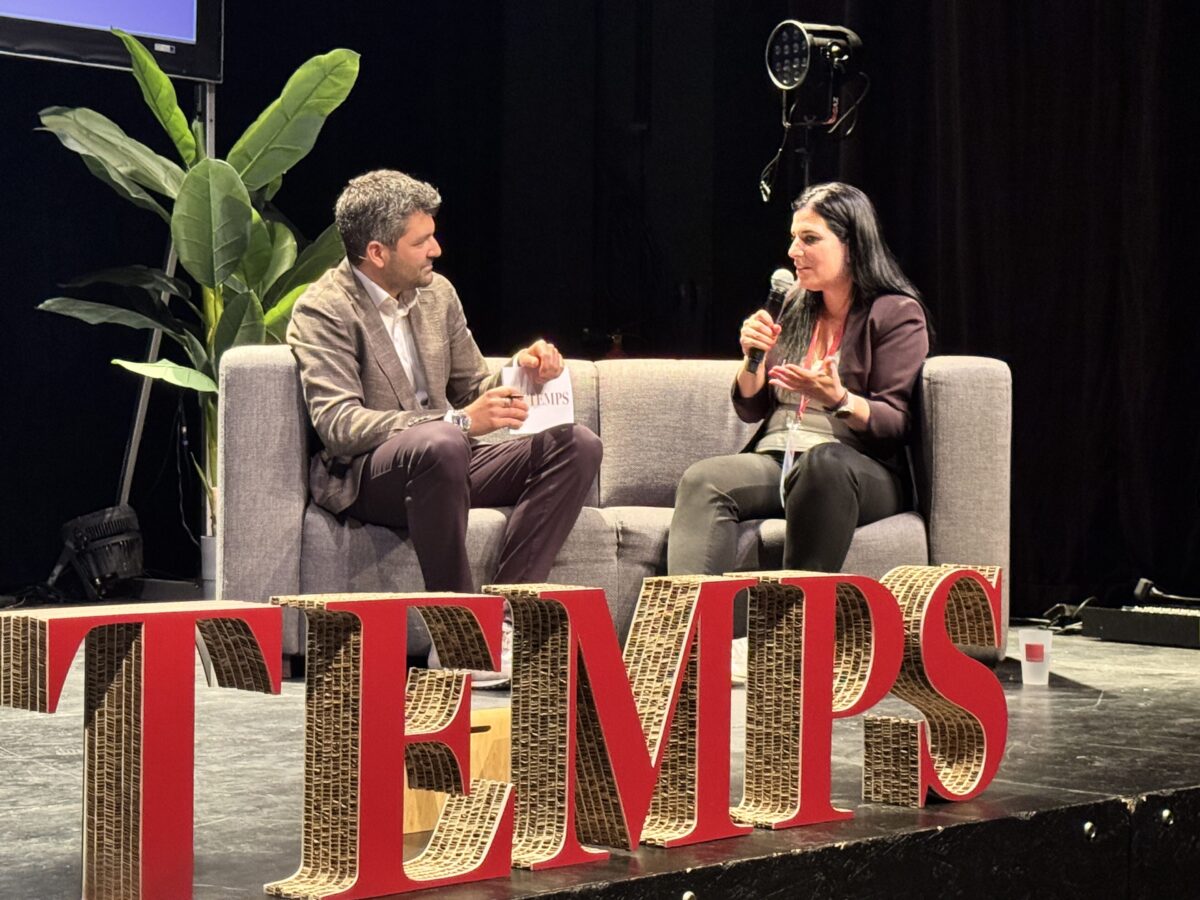
Looking ahead to the infrastructure age
Microsoft’s four-track investment is not a moon-shot. It is a smart bet on a base already rich in talent density, academic excellence, and capital efficiency. Zürich’s walkable super-cluster and Lausanne’s robotics forge will soon run on sovereign GPU servers. Vocational colleges will graduate tens of thousands of AI-literate workers. And corporate labs from Basel to Bern will tap domestic compute rather than ship workloads abroad.
Switzerland long called itself an innovation laboratory. With hyperscale silicon now embedded in Switzerland’s fabric, it is gearing up to become the production line as well. For international investors the implication is clear: the most capital-efficient, IP-dense bets in European AI no longer hide in stealth. They ride the SBB between Zürich and Lausanne, and they are ready to talk.
FAQ on Microsft’s investment in Swiss AI
1. What exactly is Microsoft’s 400 million-dollar investment in Swiss AI?
Microsoft has committed 400 million USD to expand local cloud and AI infrastructure in Zurich and Geneva, create a Swiss AI Tech Accelerator for start-ups and SMEs, and train one million residents in digital skills by 2027. The package is designed to remove the main growth bottlenecks Swiss AI companies face.
2. How will the upgraded data centers strengthen Swiss AI research and development?
New GPU-rich clusters in Zurich and Geneva let engineers train and fine-tune advanced models without exporting data. Lower latency, full data residency, and energy-efficient hardware mean Swiss AI teams can experiment faster while meeting strict privacy and compliance rules.
3. Why does local data sovereignty matter for Swiss AI companies?
Many health-tech, finance, and government projects require that sensitive data stay within national borders. Microsoft’s on-shore capacity allows Swiss AI workloads to comply with Swiss and EU regulations while avoiding the delays and costs of cross-border transfers.
4. What is the Swiss AI Tech Accelerator and who can join?
The accelerator is a nationwide program run with Switzerland Innovation Parks. It will offer cloud credits, GPU hours, mentorship, and go-to-market support to selected Swiss AI start-ups and scale-ups. Early-stage founders, SMEs, and university spin-offs building AI-driven products can apply through regional innovation park partners.
5. How does the investment support Swiss AI talent development?
Microsoft aims to up-skill one million citizens through vocational schools, universities of applied sciences, chambers of commerce, and NGOs. Courses range from basic AI literacy to advanced prompt-engineering and model-ops, broadening the Swiss AI talent pipeline.
6. What role does Geneva play in the future of Swiss AI governance?
Geneva’s concentration of UN agencies and NGOs positions it as the diplomatic hub for global AI policy. Microsoft will use the city as a platform to shape trustworthy AI standards, aligning Swiss AI innovation with international governance frameworks.
7. How does Switzerland’s regulatory environment give Swiss AI an edge?
Federal policy is technology-neutral, aligned with EU data law yet avoids the heavy compliance overhead of the forthcoming EU AI Act. This lets Swiss AI founders recruit, raise capital, and launch products faster than many peers in other European hubs.
More Content
-
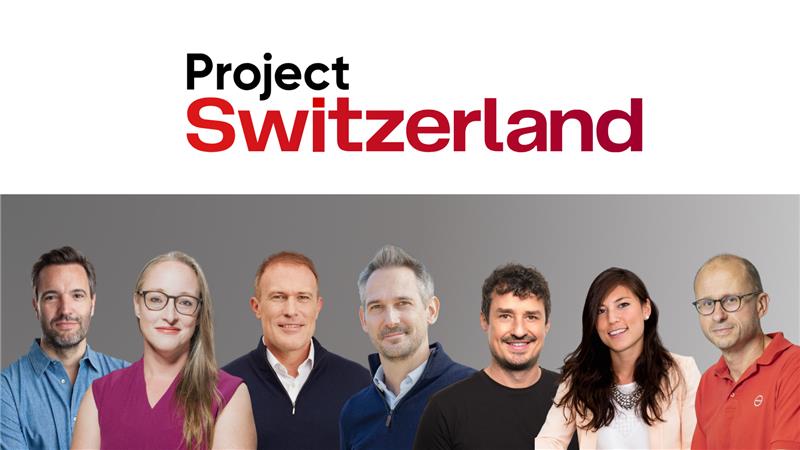
Today marks a defining moment for the Swiss innovation ecosystem. Deep Tech Nation Switzerland officially launching Project Switzerland, a national initiative with a singular, critical…
-

More money has flowed into all Swiss scale-ups per capita than into scale-ups in the US or Israel. This is backed by a ten-year growth…
-

Impatience is Imperative There is a distinct cultural friction when a Swiss founder steps into the US market. In Switzerland, the prevailing operating system is…